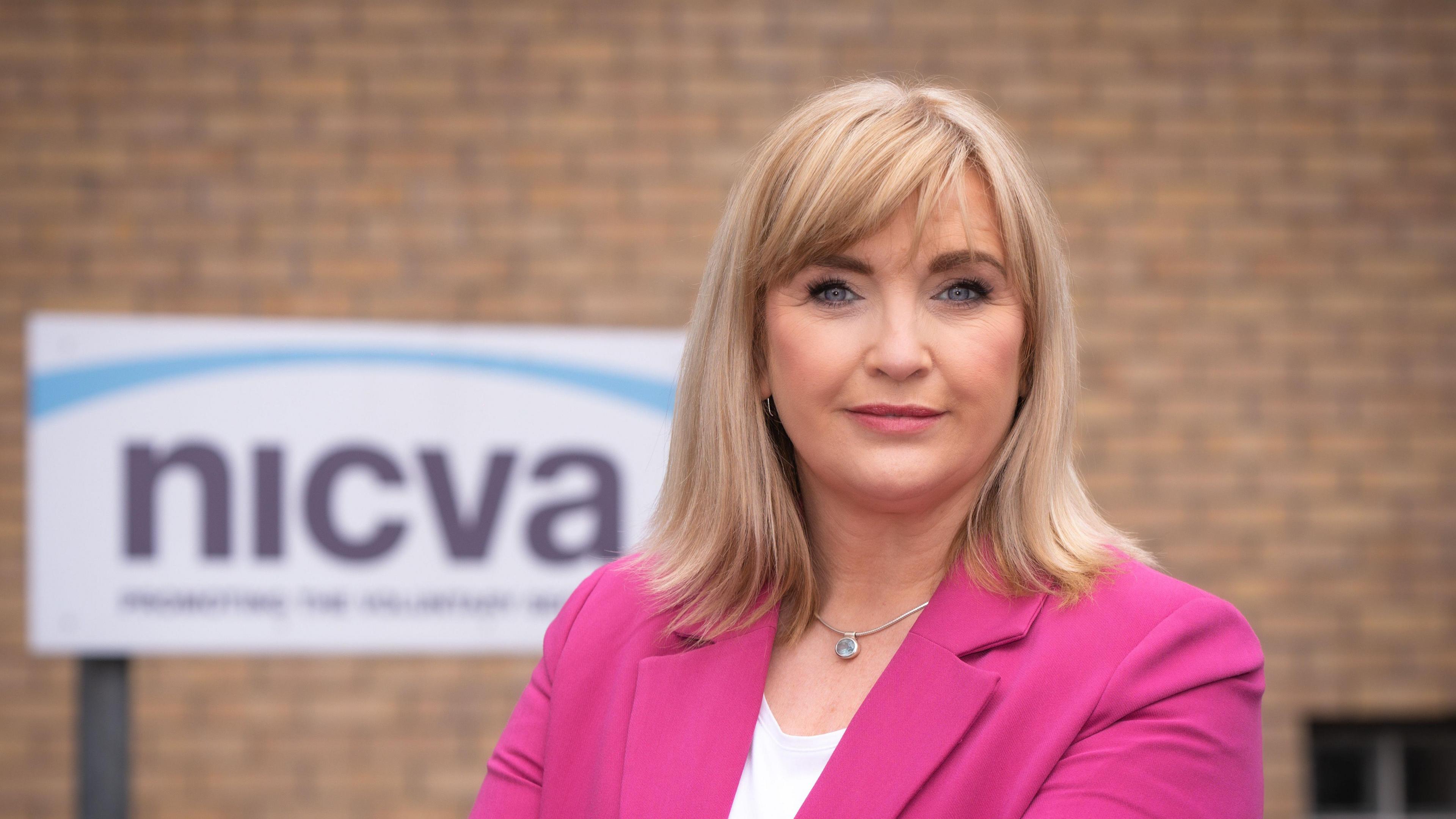Falling job vacancies may signal recession, recruiter warns

- Published
Job vacancies are falling and the economy is "cooling", suggesting recession may be "around the corner", according to the boss of Reed, one of the UK's largest recruitment firms.
Speaking to the BBC, James Reed said his firm had noticed a sharp fall in the number of jobs being advertised and urged the government to rethink the recent increase in the tax employers pay on staff wages.
"We're like the crow's nest on a ship," he said. "We get the vacancies coming into our website early, so we see what's happening in the labour market."
The government said it had faced "difficult decisions" but that official forecasts suggested employment would rise over the next three years.
Vacancies advertised on Reed's website had fallen 13% between October and November, Mr Reed told the Sunday with Laura Kuenssberg programme.
The vacancy figure was now 26% lower than a year ago, he said, a "significant decline".
"That worries me because when I've seen that in the past, it's been an indication that recession is around the corner," he said.
Economists describe the economy as in recession if it shrinks for two three-month periods, or quarters, in a row.
The UK economy grew in the first part of this year, but shrank in September and October, according to the latest growth figures. Restaurants, pubs and retail - sectors which rely on lower-waged staff - reported weaker months, officials statistics showed.
On Tuesday the latest official jobs figures will show whether a recent increase in the UK's unemployment rate has continued into October.
While still moderate by historical standards, unemployment ticked up to 4.3% in September, compared to 4% in the period March to May.
Mr Reed said the Budget at the end of October had "spooked" business, in particular the move to raise employers' National Insurance Contributions (NICs), the tax that firms pay on the wages of staff they employ.
Next April the rate will rise from 13.8% to 15%, and the starting threshold for those NIC payments will go down from £9,100 to £5,000.
However, the policy shift also includes a rise in the employment allowance, a tax relief designed to help smaller businesses.
For firms that are eligible, the allowance will rise from £5,000 to £10,500 in April, reducing liability or protecting many small companies from the NIC rise altogether.
The government said the NIC tax rise was necessary to pay for an overspend in government departments, which it blamed on the previous government.
Mr Reed said the policy simply shifted the deficit onto businesses.
"This big black hole of £22bn we've heard so much about has become a million black holes in company balance sheets up and down the country," Mr Reed said.
He said firms were contemplating cutting hiring and making people redundant, reducing investment or offshoring jobs as a result of the policy.
Shadow chancellor Mel Stride has blamed the weakening economy on "the stark impact of the chancellor's decisions and continually talking down the economy".
A spokesperson for the Treasury said the government had faced "difficult choices to fix the foundations of the country and restore desperately needed economic stability".
The government's official forecaster, the Office of Budget Responsibility, predicts the economy will grow next year, and that employment will rise over the next three years, the spokesperson added.
More than half of employers will pay the same or lower NICs on their staff wage bill, according to the Treasury, due to the rise in the employment allowance.
Related topics
- Published15 December 2024

- Published30 October 2024

